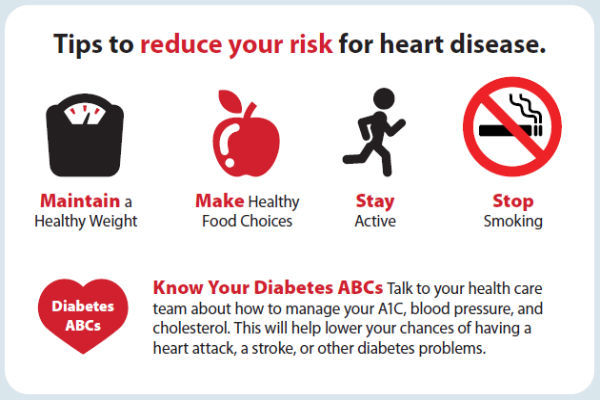According to some statistics, about 17 million people around the globe die due to heart disease. This is a shocking number and what is even worse is that experts predict that this number will be much higher in the next decade.
There are more than 300 risk factors that can be linked to heart disease and most of them can be eliminated in case we are ready to implement some changes in your lifestyle. Now let’s analyze ten easy habits that you should apply to reduce the risk of heart disease significantly.
Reduce The Risk of Heart Disease By…
1. Watching TV – Be active
Almost all people like to watch a good movie or TV show after a long day at work. Of course, there is nothing wrong with that, but this activity should not affect your physical activity in general. A recent study has confirmed that people who watch TV more than 4 hours a day have an amazing 80% increased chance of developing heart disease. You don’t have to be active all the time, but a 30-minute moderate activity per day (5 days a week) will improve your heart’s work.
2. Healthy Diet
All the substances you consume through food have a significant impact on the health of the heart muscle – it can bring benefits to the blood vessels and facilitate the functioning of the heart or it can disrupt its function and increase blood pressure. Heart disease usually occurs gradually, over a long period and they are inevitably linked to diet and lifestyle. To reduce the risk of heart disease follow these dietary rules: don’t eat abundantly, do not over-eat, avoid sweet and fatty food, and drink at least 0,5 gallons (2 l) of water a day.
3. Don’t Ignore The Snoring
Snoring prevents the proper intake of oxygen through the airways. The lack of oxygen caused by snoring causes many serious health problems. We all need quality and healthy sleep to rest and have enough energy. Numerous studies have confirmed that snoring affects the development of hypertension and heart disease. If you notice that you have this kind of problem, visit your doctor and look for advice.
4. Stop Smoking
Long-term consequences of smoking are manifested as “smoking-related diseases” and they usually appear old. The typical diseases of the lungs and airways occur as a result of direct contact between mucous membranes and tar ingredients. On the other hand, carbon monoxide, found in tobacco smoke, as well as the nicotine that enters the bloodstream leads to heart disease and problems with circulation. Quitting smoking may not be the easiest task, but you should start trying as soon as possible.
5. Stop Drinking Alcohol
Alcohol acts on the heart in the form of cardiomyopathy, and congestive heart failure. Alcohol can increase the workload of the heart. Excessive use of alcohol over a longer period can damage the heart muscle. The heart tries to compensate for the damage by becoming larger. But in the end, the heart becomes incapable of pumping enough blood which leads to heart disease.
6. Reduce body weight
Heart disease is one of the most common causes of death in developed countries. Body weight affects the development of this type of disease. If the body weight is moderately increased as compared to ideal weight, the risk of developing heart disease is increased to 105%. People who have a 20% greater weight than ideal have 50% more chances of developing heart disease. Watch what you eat and start with moderate exercise.
7. Avoid too much salt
There is strong evidence linking the intake of large amounts of salt with high blood pressure. High blood pressure adds pressure to the heart too. Avoid adding salt to the meals and don’t bring the salt on the table when you are eating.
8. Sleep well, and enough
According to a Dutch scientific study, conducted on 18.000 people, quality sleep without interruptions can be equally important factors in the prevention of heart disease as quitting smoking, moderate alcohol consumption, regular exercise, or a balanced diet. Regular 7-hour sleep can reduce the chances of heart disease by 25%.
9. Reduce stress
Scientists claim that the impact of stress on our hearts has the same harmful effects as smoking at least five cigarettes a day. People who are under constant stress are exposed to a greater risk of heart attack and premature death. Reduce your stress levels by practicing some stress-relieving techniques like yoga, Pilates, or meditation.
10. You don’t floss regularly
People suffering from coronary artery disease have 40% greater chances of suffering from gum disease too. A recent study has confirmed that there is a strong link between cardiac health and dental disease. The bacteria found in the area affected by gum disease can easily enter the blood vessels located in the mouth and reach the coronary artery vessels. The final result is the reduction of blood flow and heart problems.
